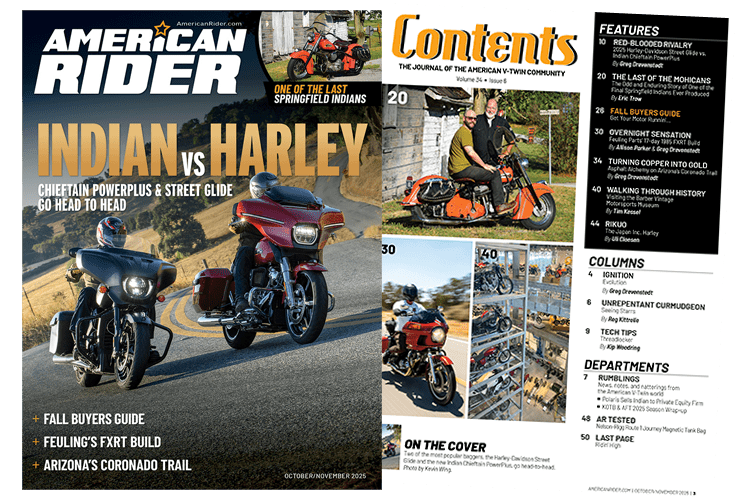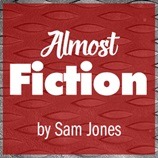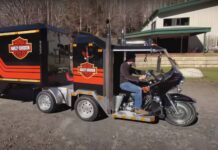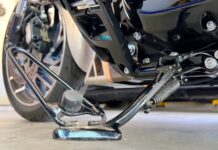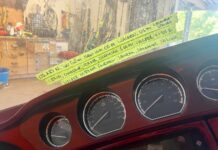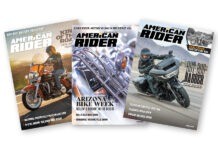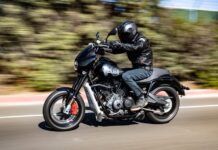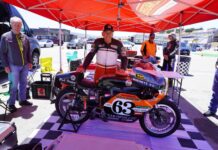Six blocks in either direction from where Main Street and Center Avenue crossed, there were thriving businesses that catered to the needs of the citizenry of this small, 100-year-old town of about 10 or 12 thousand people. There was a small college, beauty shops, barbers shops, drug stores, clothing stores, a couple of bars, a pool hall, two nice steak houses, diners, a pair of movie houses, hardware stores, feed stores, a J.C. Penney’s, a Sears catalog outlet, a Ford dealer, a John Deere tractor dealership, a lumber yard and no big-box corporations.
Twenty years ago, before the highway skirted the town, all traffic went up Main Street. However, unlike so many other towns where the highway bypassed and killed communities, this town thrived and prospered nicely because its economy had enough local commerce that it didn’t have to depend on the tourist dollars.
There were only two off ramps from the highway, one at the north end of town and one at the south. If a traveler needed fuel or food or a place to stay for the night they had to leave the busy turnpike and come into town. The Dairy Queen, gas stations and motels were all intermingled with the other businesses.
If the town didn’t have what you needed there was a large city of over 100,000 80 miles to the north.
On the east of town was a range of mountains, bigger than foothills and smaller than the Rockies which contained canyons with winding roads, streams and at the end of one there was a fairly nice-sized lake on which a person could float a small fishing boat.
With three mild seasons and a short winter the weather was conducive to riding motorcycles. Because of the canyons to the east and the wide open spaces to the west the town had a substantial population of motorcycle riders with every type and factory brand being represented. There were several small repair shops, a Honda dealer that had grown up out of a hardware store and Bob’s Place that had worked on big V-twins since the Harley and Davidson brothers got together and built their first project.
Five blocks south of Main, on Center, there was a 24-hour café named The 24 Hour Café. Having been there forever it had originally catered to the long-distance truckers that rolled through town who needed coffee, chicken fried steak and a piece of pie. Behind and around the side of the building was a large gravel area where they could park their 18-wheeled rigs. Except big trucks rarely stopped and the parking area was now perfect for large RVs, motorhomes and tourist pulling trailers. But that aside The 24 Hour Café was always friendly towards any motorcyclist.
Every morning, anywhere from two or three riders to maybe a dozen motorcycles in perfect view of a large window parked up against the building in a place too small for a car but just right for a bike. Everything from a 125 Suzuki to a full-dressed Gold Wing was welcome. Once inside the riders congregated in a small dining area where they could talk, brag and lie to each other, where there were always conversations about last week’s ride or a good-natured argument about anything that could be twisted into, “My bike is better than yours.” In any other town this dining room would have been set aside for Rotary Club meetings or the Kiwanis but at The 24 Hour Café it was the bikers that owned the mornings.
On Tuesday, at 9:00 a.m., Marvin left his house at the mouth of the canyon. Because it had rained overnight and he wasn’t sure if it was finished he strapped his rain gear to the seat of his motorcycle and made it down to The 24 Hour Café.
When he parked next to a big full-dressed Harley Electra Glide an elderly man and his wife, who had just exited the front door, stopped for a comment. The man looked approvingly at the bikes as his wife walked by herself to the parking lot and opened the door of a 30-foot Airstream trailer, letting out a small fuzzy dog.
“You know that motorcycle is dangerous,” the older man said.
“Yeah, people are always telling me that my bike is dangerous.” From Marvin.
“No, your Triumph Bonneville is OK; that big Harley with all the bags and tour box is dangerous.”
“Mine is OK but that one is dangerous?”
“Yeah. I rode for years. Back in the ’40s and ’50s. During the war I was a dispatch rider for the Army and later delivered for Western Union and bikes like that were dangerous.”
“Because they were Harleys?”
“No, not that. It’s all the bags and boxes on the back. You can’t get off when you need to.”
“Huh?” Marvin didn’t know where the old man was going with this.
“I stripped down all the bikes I rode; got rid of all the bags. The brakes sucked and when it came to a panic stop you needed to lay it down. Got tired of that shit so instead I got pretty good at sliding myself back onto the rear fender, planting my boots flat on the ground, get them skidding and then pushing off, letting her go. If you did it just right the motor would go down the road a ways and flop over and you’d be standing safely with both feet planted on the road. Of course, sometimes you’d get a hell of a hotfoot, but you’d be OK. That’s why that big Harley is dangerous; there’s no way to get off the back.”
Marvin said he’d never heard that one before, thanked the old gentleman for the advice, bid him goodbye, watched him join his wife who was collecting the dog who had finished marking its territory and then walk into The 24 Hour Café for breakfast.
As Marvin took his regular seat he said, “Two eggs over easy, bacon, burn the hash browns, coffee and surprise me with the kind of toast.” Walking by his table the waitress didn’t stop, just sort of slowed down to take his order. She wasn’t surprised.
“So, who was your buddy we saw you talking to?” Ed and Henry wanted to know.
“A really nice old guy who said your big Harley Electra Glide is dangerous. The rest of the bikes are OK, but yours is dangerous.”
For toast, the waitress startled Marvin by serving an English muffin.

